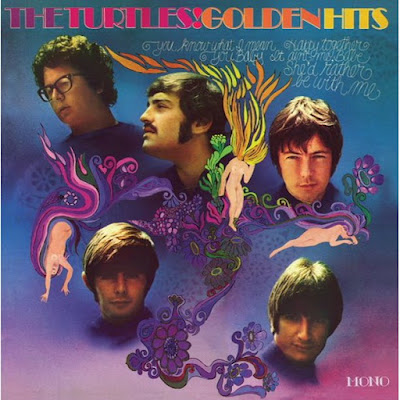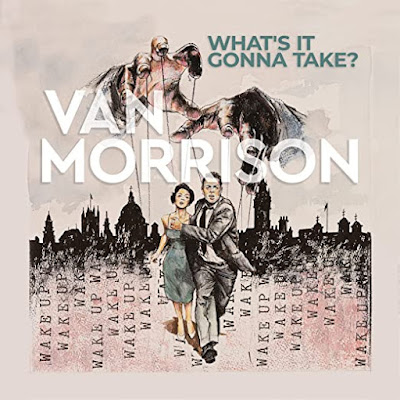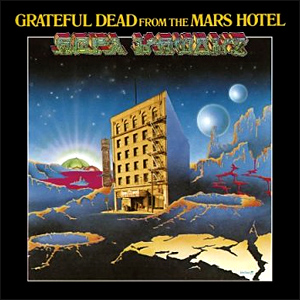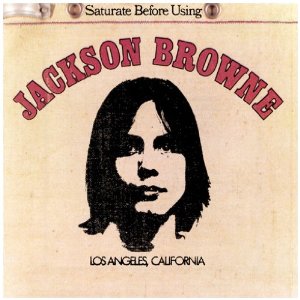Jackson Browne has had an interesting career, and has been willing to wear his heart (as well as his politics) on his sleeve, mostly quite admirably. His early records in the seventies set a romantic singer-songwriter blueprint that Browne has rarely followed since. His eighties output suffered not only from cumbersome political lyrics but tragic eighties "updating" of his sound and production, overusing all of the awful eighties trends of synthesizers and slick studio tricks. Since the nineties, his records have been a mixed bag of styles and lyrical focus, all professionally crafted, and if not quite the equal of his early work, certainly better than his eighties missteps.
It is hard for me not to think of his first five records as the pinnacle of his career, but in retrospect I find this opinion a little too forgiving. I love the debut, but For Everyman 1973 and The Pretender 1976 are not as strong as Jackson Browne 1971, Late For The Sky 1974, and Running On Empty 1977.
Jackson Browne is very nearly perfect. Great love songs, tragic heartbreak, and even some light rockers. Introspection rarely comes off this well. It has aged remarkably well, thanks to the near-perfect production using only those elements required by each song. My brother, a professional bass player himself, remarked that "Leland Sklar gives a master class in how to play high register melodic, complementary bass lines". So there's another reason to pull it back out and listen again.
For Everyman 1973 comes very close. We didn't need another version of Take It Easy, and the trite take on pregnancy of Ready Or Not are not golden moments. I still can't decide if the rocker Redneck Friend helps things, but I suppose when you write so many slow songs, when you get one to move, you'd best record it. These Days, For Everyman, and most of the rest sound like a continuation of the magic of the debut. This is where Browne's longtime association with David Lindley begins. Lindley's steel guitar and violin will become hallmarks of Browne's sound for years to come.
For me at least,
Late For The Sky 1974 is Browne's most fully realized work. It's a break-up record for sure (all of side one), but it also includes Browne's post-apocalyptic warning Before The Deluge, his tribute to a lost friend For A Dancer, and two of his better rockers The Road And The Sky and Walking Slow. Every song a winner, this doesn't happen very often no matter who you are.
Something happens on The Pretender 1976 that infects nearly all of his work to come. Mostly gone are the delicate acoustic arrangements in favor of a middle-of-the road soft rock. Browne's gift for melody is very real, but we can hear him reusing previous ideas and patterns. The lyrics are still good, and the title track is a classic song of acceptance (you can almost see the seventies hippies running out to buy SUVs), but the record's overall impact is slight, and it hasn't aged particularly well.
Which brings us near the end of the seventies, and
Running On Empty 1977. Recorded live on stage and in hotel rooms, backstage, and on the bus, the record is unique and special in several ways. A brilliant and casual record, it became the most successful record of his career. Solid rockers (the title track, You Love The Thunder) mix with introspection and road observations until the lovely The Load-Out/Stay medley ends the record on a high note.
Enter the eighties, and Jackson Browne gets his sound brought up to the current (and dismal) eighties standard. Synths, ultra-clean (sterile) studio sound, big drums, and Browne's least interesting lyrics make for one tragic mess. That Hold Out 1980 is his only chart-topper is sad commentary. Lots of folks ran out and bought the studio follow-up to The Pretender, because it certainly wasn't the reviews that made it a hit.
Browne's next three records, Lawyers In Love 1983, Lives In The Balance 1986, and World In Motion 1989 all have similar if not equal flaws. All are guilty of some of Browne's lazy melody writing, and the political sentiments (especially on the last two) help to make for some awkward lyrical moments even if you agree with Browne's liberal politics. Lawyers In Love had several solid singles, and Lives In The Balance had a moment (In The Shape Of A Heart).
In 1993, Browne returns to the fragile heart with
I'm Alive, equaling his best work from the seventies for the last time in his career. Inspired by his ugly break-up after nine years with Daryl Hannah, the record is just about perfect. The eighties sheen is gone from the sound, and Browne writes his most inspired collection of songs in a long time. Every song a winner. Not many artists do it, but with this one, the debut, and
Late For The Sky, Jackson Browne does it three times.
Looking East 1996 finds Browne back at political observation for most of the set. The Barricades Of Heaven is good, and there's a few others that are worth hearing. It's an improvement on his eighties work, but that's a pretty low bar.
2002 brought The Naked Ride Home, and although a mixed bag, it is mostly strong. Bookended by the killer title track and My Stunning Mystery Companion, what lies between is mostly solid.
Next up is Solo Acoustic Vol. 1 2005. On this set, as on Solo Acoustic Vol. 2 2008, Browne returns to his catalog and does a fine job of selecting classics mixed with the better work from his more recent output to fine effect. With just Browne and either acoustic guitar or piano, it's an intimate affair. I prefer the more developed original arrangements (especially on his early work), but these are nicely recorded acoustic shows, and Browne's songs hold up well in stripped down versions.
2008 also brought Time The Conqueror, another blend of political commentary and a few personal tales. The music is good, if not anything particularly new, and we can begin to feel like Browne has run out of new ideas, even if he's pretty good at recycling the old ones. Let's call it Looking East Volume 2.
Standing In The Breach 2014 doesn't rock the boat too much, but it still sounds better than he has in a while. The title track, The Birds Of St. Marks, The Long Way Around, and Here (a single from 2009) are all above average, so a pretty good one overall.
Finally, we have
Downhill From Everywhere 2021. You can be impressed that he's still at it, and enjoy one that is better than anything since
I'm Alive. It doesn't have that record's consistent theme, but it has his most inspired set of tunes in a long time, and a little bit of rocking with the title cut and the humorous My Cleveland Heart. The other songs find Browne working his craft and working hard at not sounding the same all the time.
You have to admire his tenacity at keeping it going, and his willingness to address political issues despite what that may have done to his sales over the years. His voice has never lost anything, and his convictions remain strong. As a songwriter, he has repeated himself more than a few times, but so has every other songwriter with as much output as his. His live shows remain popular, and there are plenty who will gladly listen to his newer material for a chance to hear him do his early classics. Not many artists have made as many perfect ones as Jackson Browne.





















































